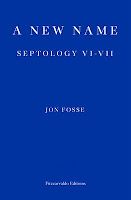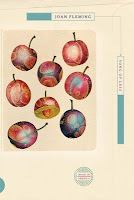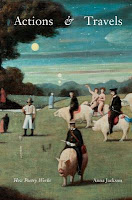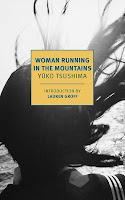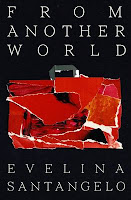NEW RELEASES
Pure Colour by Sheila Heti $46Here we are, just living in the first draft of creation, which was made by some great artist, who is now getting ready to tear it apart. In this first draft, a woman named Mira leaves home for school. There, she meets Annie, whose tremendous power opens Mira's chest like a portal--to what, she doesn't know. When Mira is older, her beloved father dies, and she enters the strange and dizzying dimension that true loss opens up.
"Pure Colour tells the story of a life, from beginning to end. It is a galaxy of a novel: explosive, celestially bright, huge, and streaked with beauty. It is an atlas of feeling, and a shape-shifting epic. Sheila Heti is a philosopher of modern experience, and she has reimagined what a book can hold."
Toi Tū Toi Ora: Contemporary Māori art edited by Nigel Borell $65The art book that everyone has been waiting for! The story of contemporary Maori art from the 1950s to the present day, with more than 200 artworks by 110 Maori artists. Maori art is unique among all art movements, and to Aotearoa New Zealand. Drawing on centuries of indigenous knowledge and skill, it reflects a Maori world view, life in this land and the debates that continue to shape it.
Harrow by Joy Williams $33Williams's powerful, dark and strangely enjoyable novel addresses the roots and impact of climate apocalypse in and on the workings of both human consciousness and the unconscious. Khristen is a teenager who, her mother believes, was marked for greatness as a baby when she died for a moment, then came back to life. After Khristen's boarding school for gifted teens closes its doors, and her mother disappears, she ranges across the dead landscape and finds a 'resort' on the shores of a mysterious, putrid lake the elderly residents there call 'Big Girl'. In a rotting honeycomb of rooms, these old ones plot actions to punish corporations and people they consider culpable in the destruction of the final scraps of nature's beauty. Rivetingly strange and delivered with Williams' searing, deadpan wit, Harrow is a tale of paradise lost and the reasons to try and recover something of it.
Phenotypes by Paulo Scott (translated by Daniel Hahn) $36
The Sea Is Not Made of Water: Life between the tides by Adam Nicolson $40 Fabric: The hidden history of the material world by Victoria Finlay $55
Fabric: The hidden history of the material world by Victoria Finlay $55
A New Name (Septology VI—VII) by Jon Fosse (translated by Damian Searls) $38
The Language Lover's Puzzle Book: Lexical perplexities and cracking conundrums from across the globe by Alex Bellos $28
"A brilliant portrayal of collapsing reality. Williams peels back the visible and known, revealing death and chaos beneath. Part of what makes Williams’s work so destabilising is that agency has almost no significance. Navigating a world that makes no sense, her characters are lost and baffled, their actions and ideas stripped of meaning. Harrow reminds us that, as a consequence of climate collapse, trauma and grief are the condition of our collective existence. As our world disintegrates, it will take what we think of as reality with it. Addressing this in fiction will be the job, partly, of a certain kind of modern mystic. Williams – great virtuoso of the unreal – is one of them." —Guardian
>>"Joy Williams does not write for humanity."
The Doloriad by Missouri Williams $35
In the wake of a mysterious environmental cataclysm that has wiped out the rest of humankind, the Matriarch, her brother, and the family descended from their incest cling to existence on the edges of a ruined city. The Matriarch, ruling with fear and force, dreams of starting humanity over. Her children and the children they have with one another aren't so sure. Surrounded by the silent forest and the dead suburbs, they feel closer to the ruined world than to their parents. Nevertheless, they scavenge supplies, collect fuel, plant seeds, and attempt to cultivate the poisoned earth, brutalizing and caring for one another in equal measure. For entertainment, they watch old VHS tapes of a TV show called Get Aquinas in Here, in which a problem-solving medieval saint faces down a sequence of logical and ethical dilemmas. But one day the Matriarch dreams of another group of survivors, and sends away one of her daughters, the legless Dolores, as a marriage offering. When Dolores returns a few days later, her reappearance triggers the breakdown of Matriarch's fragile order and the control she wields over their sprawling family begins to weaken. As the children seize their chance to escape, the world of the television saint Aquinas and that of the family begin to melt together with terrible consequences. Told in extraordinary, intricate prose that moves with a life of its own, at times striking with the power of physical force, Missouri* Williams's novel is a blazingly original document of depravity and salvation.
Cursed Bunny by Bora Chung (translated by Anton Hur) $38
A genre-defying collection of short stories from this superb Korean author. Blurring the lines between magical realism, horror, and science-fiction, Chung uses elements of the fantastic and surreal to address the very real horrors and cruelties of patriarchy and capitalism in modern society.
>>Long-listed for the 2022 International Booker Prize.
>>Long-listed for the 2022 International Booker Prize.
Small Things Like These by Claire Keegan $33
In 1985, in an Irish town, Bill Furlong, a coal and timber merchant, faces his busiest season. As he does the rounds, he encounters the complicit silences of a people controlled by the Church.
"Keegan creates luminous effects with spare material, so every line seems to be a lesson in the perfect deployment of both style and emotion." —Hilary Mantel
"Astonishing. Claire Keegan makes her moments real - and then she makes them matter." —Colm Toibin
"A true gift of a book. a sublime Chekhovian shock." —Andrew O'Hagan
"A haunting, hopeful masterpiece." —Sinead Gleeson
A smart and stylish account of the bigotry lurking in hearts and institutions alike. In this complex tale, two very different brothers of mixed black and white heritage are divided by the colour of their skin, as racial tension rises in society and a guilty secret resurfaces from their shared past. Paulo Scott here probes the old wounds of race in Brazil, and in particular the loss of a black identity independent from the history of slavery. Exploratory rather than didactic, a story of crime, street-life and regret as much as a satirical novel of ideas, Phenotypes is a seething novel of rage and reconciliation.
Few places are as familiar as the shore – and few as full of mystery and surprise. How do sandhoppers inherit an inbuilt compass from their parents? How do crabs understand the tides? How can the death of one winkle guarantee the lives of its companions? What does a prawn know? Nicolson explores the natural wonders of the intertidal and our long human relationship with it. The physics of the seas, the biology of anemone and limpet, the long history of the earth, and the stories we tell of those who have lived here: all interconnect in this zone where the philosopher, scientist and poet can meet and find meaning. The intertidal has been the scene for all kinds of scientific discovery – from the process of evolution to the inner workings of biological networks. But its story is as much human as natural history: how far should our lives be understood within the vast landscape of ecology? What do our buried beliefs about the tidal sea reflect of our relationship to nature? And is it the shifting condition of the tidal world, its pervasive uncertainty, its fierce interfolding of opportunity and threat, that makes it one of the most revelatory and beguiling habitats on earth?
Sybil & Cyril: Cutting through time by Jenny Uglow $45
In 1922, Cyril Power, a fifty-year old architect, left his family to work with the twenty-four year old Sybil Andrews. They would be together for twenty years. Both became famous for their dynamic, modernist linocuts, streamlined, full of movement and brilliant colour, summing up the hectic interwar years. Yet at the same time they looked back, to medieval myths and early music, to country ways disappearing from sight. Sybil & Cyril traces their struggles and triumphs, conflicts and dreams, following them from Suffolk to London, from the New Forest to Vancouver Island. This is a world of Futurists, Surrealists and pioneering abstraction, but also of the buzz of the new, of machines and speed, shops and sport and dance, shining against the threat of depression and looming shadows of war. Uglow's enjoyable books always convey their subjects as both exemplars of their time and somehow standing in distinction from it.

Finlay investigates how and why people have made and used cloth. A century ago in Wales, women would sew their own funeral clothes over tea with friends. In Papua New Guinea, bark is stripped from trees and beaten into cloth. Harris Tweed has a particular smell, while Guatemalan weavers use dazzling colours. Uncovering the stories of the fabrics people wear and use from sacking to silk, Fabric combines science, history, tradition and art in a captivating exploration of how we live, work, craft and care.
The third and final volume of the Norwegian writer's wonderful 'slow prose' project dealing with the life or lives of two aging painters, each called Asle but one lonely and alcoholic and the other comfortable and successful. Fosse's prose is subtle and hypnotic, and the books deal with existential questions of agency, morality and culpability.
Essays written between 2004 and 2021, covering a vast range of important (and some less-important but still instructive) issues, with Atwood's characteristic incisiveness, depth of both knowledge and passion, agile wit, and exemplary phrasing. Climate change, authoritarianism, storytelling, zombies and ethics, literature, and granola are all part of Atwood's literary landscape.
The Book of Mother by Violaine Huisman (translated by Leslie Camhi) $48
The War of Nerves: Inside the Cold War mind by Martin Sixsmith $55Beautiful and charismatic, Catherine, aka ‘Maman’, smokes too much, drives too fast, laughs too hard and loves too extravagantly. During a joyful and chaotic childhood in Paris, her daughter Violaine wouldn’t have it any other way. But when Maman is hospitalised after a third divorce and breakdown, everything changes. As the story of Catherine’s own traumatic childhood and coming of age unfolds, the pieces come together to form an indelible portrait of a mother as irresistible as she is impossible, as triumphant as she is transgressive.
Long-listed for the 2022 International Booker Prize.
More than any other conflict, the Cold War was fought on the battlefield of the human mind. And, nearly thirty years since the collapse of the Soviet Union, its legacy still endures — not only in our politics and distressing current affairs, but in our own thoughts, and fears. Drawing on untapped archives and hitherto unseen sources, Martin Sixsmith recreates the tensions and paranoia of the Cold War, framing it for the first time from a psychological perspective. Revisiting towering personalities like Khrushchev, Kennedy and Nixon, as well as the lives of the unknown millions who were caught up in the conflict, this is a gripping account of fear itself — and in today's alarming and uncertain times, it is more resonant than ever.
Five Straight Lines: A history of music by Andrew Grant $70
Ranging across time and space, this book takes us on a grand musical tour from music's origins in prehistory to the twenty-first century. Charting the leaps in technology, thought and practice that led to extraordinary revolutions of music in each age, the book takes us through medieval Europe, Renaissance Italy and Jazz era America to reveal the rich history of music we still listen to today. Gant brings to life the people who made the music, their techniques and instruments, as well as the places their music was played, from sombre churches to rowdy taverns, stately courts to our very own homes.
Wanderers: A history of women walking by Kerri Andrews $28
A book about ten women over the past three hundred years who have found walking essential to their sense of themselves, as people and as writers. Wanderers traces their footsteps, from eighteenth-century parson's daughter Elizabeth Carter—o desired nothing more than to be taken for a vagabond in the wilds of southern England—to modern walker-writers such as Nan Shepherd and Cheryl Strayed. For each, walking was integral, whether it was rambling for miles across the Highlands, like Sarah Stoddart Hazlitt, or pacing novels into being, as Virginia Woolf did around Bloomsbury.
In Kiltumper: A year in an Irish garden by Niall Williams and Christine Breen $43Thirty-four years ago, when they were in their twenties, Niall Williams (author of This Is Happiness and History of the Rain) and Christine Breen made the impulsive decision to leave their lives in New York City and move to Christine's ancestral home in the town of Kiltumper in rural Ireland. In the decades that followed, the pair dedicated themselves to writing, gardening and living a life that followed the rhythms of the earth. In 2019, with Christine in the final stages of recovery from cancer and the land itself threatened by the arrival of turbines just one farm over, Niall and Christine decided to document a year of living in their garden and in their small corner of a rapidly changing world.
Elephant Island by Leo Timmers $30A shipwrecked elephant makes his tiny island a home for the many friends who come to the rescue, building increasingly intricate constructions that turn Elephant Island into a fun park city.
The Language Lover's Puzzle Book: Lexical perplexities and cracking conundrums from across the globe by Alex Bellos $28
Can you decipher the code of a long-lost civilisation? Or solve riddles in runes? Or will you get lost in translation? Crossing continents and borders, puzzle expert Alex Bellos has gathered more than one hundred of the world's best conundrums that celebrate the diversity of human language and culture, all while testing your deduction and intuition. Fun.
* (Pronounced "Misery")










